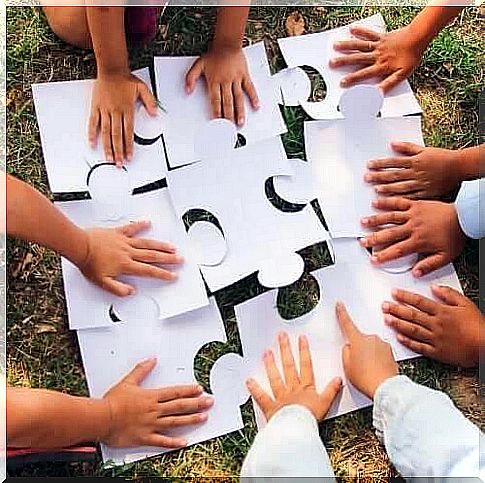Collaborative Games For Children: Why They Are So Important

Collaborative games are games where the element of competition disappears and cooperation reigns. The fundamental purpose of these games is cooperation and to help each other achieve a common goal. These games have many uses, but one of their primary benefits is that they help to forge bonds among the participants.
You can use collaborative games in groups that are being formed, or in situations where there is already an established group, but where it is necessary to strengthen the unity. These games increase social skills as well as the ability to share and to be sweet.
Collaborative play promotes trust through supportive collaboration. They help achieve common goals in a fun and playful way. In addition, they also help eliminate the element of competition, making learning more useful. We take a closer look at the various benefits of these activities.
Collaborative play reduces violence among young children
These games are excellent tools for reducing violence among young children. This is clear from the study Collaborative Play Among Toddlers: A Way to Modify Aggression , conducted by April Bay Hinitz in 1994 at the University of Nevada, Reno, USA.

Shared learning
Collaborative play is just as much a form of shared learning. Currently, there are many studies documenting the benefits of shared learning.
The benefits of shared learning include the ability for a greater ability to master educational content. It also helps reduce control and discipline issues in the classroom. In addition, studies have shown that play is an essential part of a child’s mental health and intellectual development.
Autistic children
Research has also shown that collaborative play is also extremely useful in therapeutic situations to improve the communication skills of autistic children and socially excluded children. Children on the autism spectrum do not develop social imitation games and creative activities on the same level as other children. Therefore, collaborative games are extremely useful for them.
A sense of belonging through collaborative play
Collaborative games are inclusive, and therefore they have the ability to promote the feeling of belonging in a group. The importance of feeling a sense of belonging when it comes to academic achievement has been documented widely in various studies. This includes a study conducted by Geoffrey Cohen of Stanford University.
Fun through collaborative games
The fun and joy that these games offer are emotions that are becoming more and more valuable and important within educational settings. Positive psychology has also begun to document the value of joy and happiness in human health.

Empathy
Collaborative games help promote empathy because they possess the underlying ethics of shared care. This goes against the personal individualism that is so marked in our society.
Say goodbye to the competition elements
These games offer a much needed break from the need to compete. Studies have shown that competition has many disadvantages in children. It increases anxiety and reduces the feeling of equality.
When adults offer children the opportunity to play in a collaborative context, we send a signal that collaboration is a valuable and important social norm. Therefore , these games help to promote positive, social climates that are safer and more comfortable for children.









